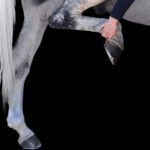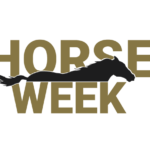July 25, 2008 — As the Olympic buzz builds, it’s time to play the medals guessing game. Of course, past performance and current form play a big role in formulating predictions of who will win, but there’s quite a wild card factor this time around.
The equestrian portion of the Games was moved from Beijing to Hong Kong because of quarantine problems, and certainly there are a lot of pluses to being in such a cosmopolitan city. The rather daunting downside is the fact that it’s typhoon season, with high temperatures and humidity. That’s been taken into consideration, naturally: Most of the action will be at night, when the sun won’t be beating down, and the horses will be stabled and exercised in air-conditioned comfort. But all must cope with the conditions, and that could skew the results in a way none of us can foresee at the moment.
U.S. eventing star and 2008 Rolex Kentucky winner Phillip Dutton, however, views the situation as possibly a plus.
“In some ways, it’s going to make it a more exciting competition. If you go to Badminton or Lexington, everybody knows what to expect,” he
says. But the unknown quality of an Olympics in Hong Kong could make for an unusually level playing field, since it’s nobody’s home turf.
“It will be interesting to see how everyone copes with it,” he says.
Eventing
Australia, Britain and France are the most likely candidates to battle it out for the team medals, but don’t exclude the U.S. contingent of Phillip, Amy Tryon and the veteran Poggio II, Becky Holder with Rolex 2008 runner-up Courageous Comet, Gina Miles (McKinlaigh) and Heidi White-Carty (Northern Spy.)
Eventing squads, as you see, have five members, with the best three scores to count, which offers some leeway. Still, we’ve been affected by the fact that we’ve lost two important horses with one of Phillip’s mounts, The Foreman, being pulled to take care of a splint problem and the tragic death of Theodore O’Connor. The Brits have lost World Champion Zara Phillips and Toy Town, injured in a stable accident, so that’s someone they’ll miss.
If we have a chance for an individual medal, it’s Phillip with Connaught. Individual medals are determined by a second show jumping round after the one that decides the team medals, and since show jumping is Connaught’s strong point, Phillip is optimistic.
I’m thinking European Champion Nicolas Touzaint of France with 2008 Badminton winner Hildago De L’ile and Australia’s Lucinda Fredericks with Headley Brittania could battle it out for the gold. But don’t forget Lucinda’s husband and teammate, Clayton, with 2007 Rolex winner Ben Along Time, or Britain’s William Fox-Pitt with Parkmore Ed.
Eventing, of course, is the least predictable of the disciplines because of the possibility of soundness problems and the vagaries of cross-country.
Dressage
Dressage, on the other hand, generally is the easiest of the Olympic disciplines to predict. While the show jumpers and eventers have to deal with the challenge of a course they have never seen before, and the problems that can ensue when jumps are involved, dressage has less in the way of variables and horses tend to stay true to form. In other words, a horse whose piaffe is so-so isn’t likely to be promoted to a 10, while an equine superstar who performs at (or even close to) his usual level should prevail.
For that reason, Anky van Grunsven of the Netherlands is my pick for the individual gold with the electrifying Salinero. (He can be dynamite outside the ring as well as inside. I’ll never forget seeing him gallop like a freight train toward the outgate at the World Equestrian Games in Aachen two years ago, only to be stopped, luckily, by the mounted police.)
The nine-time World Cup finals winner could well lead her squad to victory in the team fray, breaking a streak of German team golds in dressage that stretches back to 1976 (with the exception of 1980 in Moscow, the Games that the Germans and much of the West did not attend because of the boycott).
Interestingly, Dutch rider Adelinde Cornelissen, who was a sensation at Aachen this year with Parzival, is only the reserve rider for her homeland. If she at some point is added to the team, it would make the Dutch even stronger.

The Dutch gold is by no means a given, of course. Germany will fight, and it is led by Anky’s longtime rival, Isabell Werth on Satchmo, the big winner at Aachen, where Salinero did not make an appearance. So gold and silver are definites for the Dutch and Germans, and I reserve my right to say it’s practically a toss-up and no surprise if Germany does manage to hold its edge in the record books.
For bronze, I’m picking the U.S. team of Steffen Peters with Ravel, the convincing selection trials winner; Debbie McDonald with her 2004 Olympic team bronze medal icon, Brentina; and Courtney King-Dye with the impressive Harmony’s Mythilus.
I think our biggest competition will be the Danes. Some experts say the Spanish and British also will be in contention, but I’m going to discount them and maintain that if we beat Denmark, we have the bronze. I should mention that there’s a new wrinkle in the dressage, since teams will have only three members, rather than four, and no drop score. So if one member of a favored squad doesn’t perform up to snuff, it leaves space for other teams to maneuver. The idea of the three-member teams was to make room for more nations to compete in the discipline (Olympic stables and housing are limited) but the word I hear is that next time we’ll be going back to four-member teams. Those drop scores are important assets.
Steffen was hinting that we might get a shot at silver this time, but I think that’s a real stretch, considering that Ravel and Myth don’t have the necessary face time in Europe with the judges over there.
I asked the U.S. dressage coach, Klaus Balkenhol, if he felt we could ever win the gold someday. Not only did he say “Yes,” but he also gave me a date–2012 in London.
This year is a changing of the guard, with Brentina the only horse who has Olympic experience. Ravel and Myth are part of the new generation, which will be coming on strong going toward the 2010 World Equestrian Games at the Kentucky Horse Park with the likes of Pan American Games individual silver medalist Lauren Sammis (Sagacious HF) and Brentina Cup winner Adrienne Lyle (Wizard) among several others waiting in the wings.
While Anky and Isabell look like 1-2 individually (and again, they could easily switch places), the individual bronze definitely is up for grabs. Adelinde might snatch it if she competes, or perhaps Germany’s Nadine Capellman with Elvis. A longshot is Andreas Helgstrand of Denmark. He was the sensation of the 2006 World Equestrian Games with Blue Hors Matine, who is out of commission, but he could squeak into a medal with Blue Hors Don Schufro. Then there’s the consistent Kyra Kyrklund from Finland with Max. I don’t see an individual medal for the U.S., though Steffen probably will come closest and I certainly expect him to be in the top 10; maybe even the top six.
Show Jumping
In show jumping, the well-calibrated U.S. squad is headed by Beezie Madden (my nominee for the individual silver) and McLain Ward, with their gold-medal horses from the 2004 Olympics, Authentic and Sapphire. The other members of the team include selection trials winner Laura Kraut on Cedric and Will Simpson with Carlsson vom Dach. Laura was the alternate for the 1992 Olympics and rode in the 2000 Games, while Will, who is making his Olympic debut, did well on a European tour earlier this year.
Germany, as usual, is the obvious choice for the team gold medal. The squad is headed by my individual gold medal pick, former America Meredith Michaels-Beerbaum, the 2008 World Cup champion and number-one-ranked rider in the world with the amazing Shutterfly. Her team goes from strength to strength. Consider, for instance, that among those backing her up is another possible individual medalist, Ludger Beerbaum.
“The Germans are always the ones to beat,” U.S. show jumping coach George Morris told me, noting most of that team’s members “have two Aachen grand prix horses. Beezie and McLain and our people, they really just have one.”
George quickly added, “I’m not saying that to discourage us. Potentially, we have a great team.”
And don’t forget that luck has something to do with the results, not only on the day of competition, but also beforehand. When it comes to luck, the Dutch show jumpers–who were my potential silver medalists–have been in trouble. Their 2000 Olympic individual gold medalist, Jeroen Dubbeldam, was badly injured earlier this year when he was kicked by a young horse. Then Okidoki, the stellar mount of Albert Zoer, hurt his mouth in a freak stall accident. While the horse appears to have recovered, his rider is not doing as well. Albert, the lynchpin of the Dutch team who won the Aachen grand prix on Sam (there’s that depth thing again), broke his leg in a training accident two days after Aachen. Although the Dutch were hoping the world’s number-two-ranked rider could mend in time to compete in Hong Kong, it seems unlikely.
So with that in mind, I am taking the Dutch out of my medal equation and promoting the U.S. team to silver. Given that anything can happen (see the Dutch team, above) the U.S. benefits from having a great alternate rider in Anne Kursinski. She and Champ are a new combination who just got together in January, but their single-time-fault trip in the first round of the Aachen Nations’ Cup demonstrates how well they are meshing, and they offer George a comfort level, since Anne has two Olympic team silver medals to her credit.
For the bronze, Canada seems to be emerging from the shadows. As always, it will be led by “Captain Canada,” Ian Millar, who was named to the team with In Style and made first alternate with Redefin, practically assuring him of a spot in Hong Kong even if luck (once again, see above) turns against him with his number-one horse. At 61, Ian not only will be the oldest rider to ever compete in Olympic show jumping, I’m told, but also is set to match the record for Olympic team participation in any sport. This is number nine for him, tying Ian with an Austrian sailor. But the Austrian had the advantage of competing in the 1980 Moscow Olympics that Canada boycotted. Surely under other circumstances Ian would have been on the roster there, too, which would have made Hong Kong his record-breaker (the sailor’s last Olympics was 1996). But don’t worry, he probably still will make it. When I asked Ian if he would be trying for a spot on the 2012 team in London, he assured me he would, and that he hoped to ride on that squad with his son, Jonathon, and daughter, Amy.
Ian’s teammate Eric Lamaze, ranked number three in the world, should be an individual medal contender with Hickstead, so I’m picking him for the bronze. But considering the quality of my three individual medal contenders (and once again, luck) they could easily switch places.
So those are my picks. We’ll see how it all comes out while I’m writing daily here on EquiSearch.com’s Olympic pages during the Games, starting August 8. Our coverage, as it always does, will include soundbytes and my photos. While you may be watching the Games on TV or your computer, remember that the commentators are not on the scene to interview competitors. But I will be there to bring you the inside story of the most exciting athletic event on earth, so make sure you keep coming back to EquiSearch.com and tell all your friends about us, too.
Take a look at the U.S. Olympic equestrians in action before the Games start in this photo gallery.





